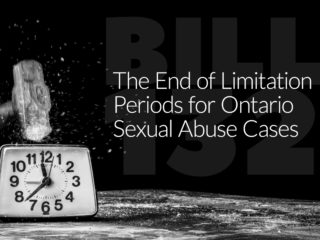After an action has been set down for trial, leave to conduct a further examination for discovery will be granted when there has been a “substantial or unexpected change in circumstances.” The plaintiff’s deterioration in health and subsequent surgery, if reasonable extensions of injuries present prior to setting the action down, will not satisfy this test.
Released June 9, 2017 | Full Decision [CanLII]
After setting the action down for trial, plaintiff’s counsel advised defence counsel that the plaintiff had undergone further surgery in relation to injuries sustained in the motor vehicle accident. The plaintiff produced clinical notes and records from the surgery and clinical follow-up care. The defendants sought a further examination for discovery of the plaintiff under Rules 48.14(1) and 31.03(1), on the basis that the plaintiff had experienced a substantial deterioration in his health since the first examination for discovery. Defence counsel argued that the anticipated line of questioning was complex and required the dialogue of an in-person examination. Defence counsel also stated that the examination would allow counsel to assess and evaluate the plaintiff’s demeanour.
Counsel for the plaintiff submitted that the surgery was consistent with the plaintiff’s injuries and circumstances throughout the action. In addition, the plaintiff offered to answer further questions in writing and attend a further defence medical examination.
Master McGraw noted at paragraphs 15 and 18:
[15] As set out in BNL Entertainment Inc. v. Ricketts, 2015 ONSC 1737, the purpose of Rule 48.04(1) is to ensure that matters are not set down until they are ready for trial. At paragraph 12 of BNL, Master Muir summarized the two approaches in the case law regarding the test to be applied under Rule 48.04(1):
- the more established test which requires the moving party to demonstrate that there has been a substantial or unexpected change in circumstances (see Jetport Inc. v. Global Aerospace Underwriting Managers, 2013 ONSC 2740; Lugen Corp. v. Starbucks Coffee Canada Inc., 2014 ONSC 7141);
- the broader more liberal and flexible approach, adopted by Master Muir in BNL, which does not require the finding of a substantial or unexpected change in circumstances but rather that the court may grant leave and make the order that is just in the circumstances where the interlocutory step is necessary in the interests of justice considering all of the circumstances and Rule 1.04(1) (see AGC Mechanical Structural Security Inc. v. Rizzo, 2013 ONSC 1316).
…
[18] The case law with respect to compelling an additional or continued examination for discovery under Rule 31.03(1) provides for a similar approach. Specifically, the moving party must demonstrate that there is “evidence that the condition of the plaintiff has deteriorated substantially” (see Suchan v. Casella 2006 CanLII 25273 (ON SC) and Guaze v. Toronto Hydro Corp., [2014] O.J. No. 5684 (S.C.J.)).
Master McGraw held that under both approaches, the defendants failed to meet the tests under Rule 48.04(1) (i.e. “substantial or unexpected change in circumstances”) or under Rule 31.03(1) (i.e. “evidence that the condition of the plaintiff has deteriorated substantially”). The plaintiff had produced records describing the deterioration of his condition and had agreed to submit to a defence medical examination. The defendants were ultimately seeking to question the plaintiff as to “why” his condition deteriorated, which the plaintiff was not qualified to answer. Master McGraw held that an in-person examination would not be reasonable, practical or proportional, but ordered the plaintiff to answer questions by writing.
Read the full decision on CanLII









